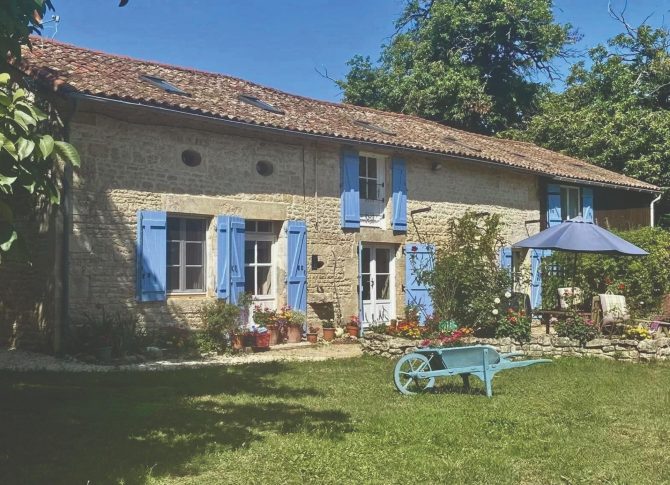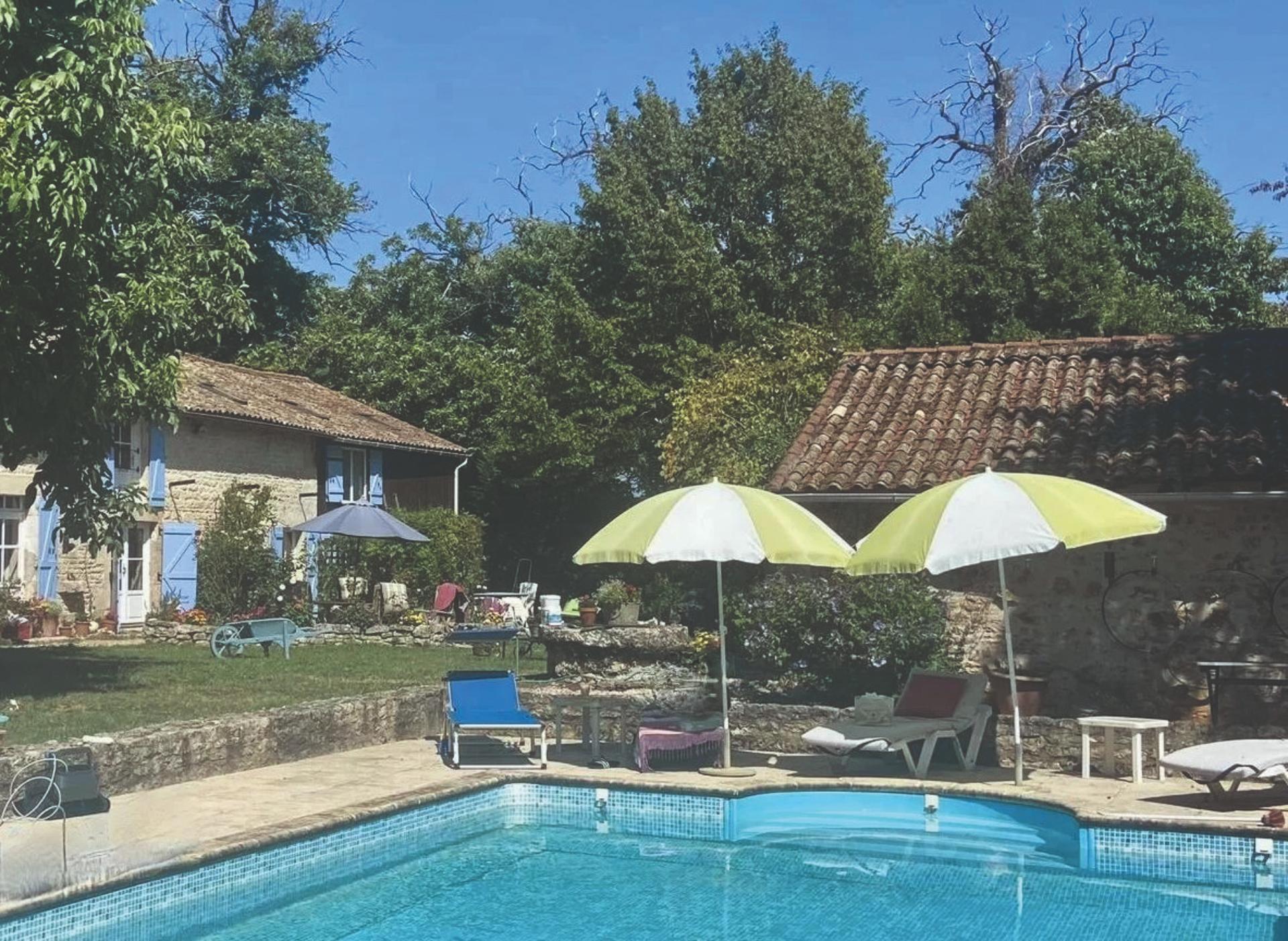12 Tips for moving to France: What I wish I’d known

If you’re all set to make the move to France, there are plenty of pioneers who have been there, done that and made the mistakes so you don’t have to! Here are 12 tips that Julie Savill wished she’d known when she took the plunge…
1. GOOD NEIGHBOURS
Neighbours are a bonus – it’s easy to slip into isolation. Living in a town or even a village in the UK, it can be easy to believe that to be private you need to be isolated. Seclusion in France is something to be considered quite carefully. Do you want to have to drive 30 minutes for the groceries or to visit a bar? That’s quite possible in rural France. Perhaps you speak great French already. If not, wouldn’t it be good to have someone nearby to chat with and practice on? We found that our neighbours were there when we needed them but didn’t ever get overfamiliar. They were happy to lend a hand, have an occasional apéro for a special event, chat in the lane outside the front door, but let us go about our daily lives (and we gave them and their space the same respect).
2. SOUNDS OF FRANCE
After a while, you don’t notice church bells and frogs! Personally, I love the sound of church bells and a frog chorus just means you’ve got a helping hand in the garden keeping the slugs and snails down. We’ve all heard stories about people moving into a French village and then complaining about these typical country sounds and more besides. Roosters were a recent hot topic. If you’re going to adopt the French country lifestyle, that means accepting it – warts, croaks, chimes and all. And honestly, I have to consciously listen for the bells now – they are just part and parcel of life. The complaints mounted in recent years to the point where the French government have enshrined in law that certain sounds (and smells) are just another aspect of country life. Just as it should be….
3. FOSSES SEPTIQUES
Septic tanks are not scary. I grew up in a market town and until my 20s had never even heard of a house without mains drainage. Moving to France, it was one of the things I had the most trepidation about. It’s an easy topic for a scaremongerer, with their tales of smells and overflows… Some 20 years on, I can safely say that we never had an issue with any fosse septique. As long as you have a decent fosse that complies, and you then comply with the 3P rule (only flush pee, poo and paper), life is simple and odourless. An occasional sachet of Eparcyl to feed the bacteria helps if you are absent for periods of time.
4. SECRET AGENT
You can buy a house and get a job. If you are making a permanent move and have the right visa, you might be considering working in France. You could put your enthusiasm for property and love of France to good use by joining an estate agency. There are different options, depending on your lifestyle and experience. Agencies have salaried support staff covering things such as marketing, HR and admin. Or there’s the freelance route of becoming an agent commercial and helping other people find their own dream property. Being freelance leaves you completely independent and means that you are free to work to your own schedule.
5. NEAR TO A BAR OR A BOULANGERIE?
Walking distance to a bar will help you integrate quicker than your proximity to a bakery. A nearby boulangerie is the dream but, given the choice, I’d go for a bar every day. Not that I’m a hardened drinker, but you get far more chance to exchange a few words and make new contacts over a glass of wine than buying a bag of croissants!
6. MONEY MATTERS
Currency exchange can have a huge effect on your budget (and nerves). From the point of making an offer to the deal actually completing takes around four months on average. During that time the currency exchange rate can vary wildly and end up costing you tens of thousands of pounds. Ask your agency for a currency company recommendation and check with them if forward booking would work for you so you know just how much money you have to play with. And you’ll need an insurance recommendation for when you do find ‘the one’!
7. HELPING HAND
Volunteering is a great way to get integrated and learn the language. Everyone loves a volunteer and there are loads of opportunities in France. Local dog and cat refuges always need helping hands, or you could join the village fête committee. All of this gets you connected, improves your language skills and makes you part of a community.
8. HOST WITH THE MOST
I’m way more private than I thought. Our first house here had a little cottage at the end of the garden that we rented out for a couple of years. I had seen friends doing it and enjoying drinks with the guests and cheerily being on call. I just didn’t like it, and at the end of the second season I took down my website and called it a day. For me, sharing my garden and pool with strangers was not worth the money.

Photo: Julie Savill
9. FULLY FURNISHED
It’s common for furniture to be included in a sale. When we sold our first house in France, almost all of the furniture stayed behind. The buyers walked in, loved it and wanted everything. This can work two ways. Either furniture and white goods are included in the price, or they are on an inventory and available by separate negotiation. Either way, it’s quick and convenient and gets your holiday home up and running in no time.
10. SEASONAL SAVVY
The busiest town in summer can quite quickly become a ghost town in winter. Just as with UK coastal destinations, small, attractive touristy villages can be all go in the summer and no go in the winter. If you intend to spend time in France out of season, do your homework and see what restaurants, bars and shops are open year-round.
11. OLD OR NEW?
Modern is cleaner. Hear me out. The dream for me was a stone- built, roses round the door farmhouse with blue shutters. And I got that – along with all the housework that goes with it. Stone walls can be dusty and cobwebby, woodburning fires also create dust. Having said all that, you simply cannot beat an older property with beams and stacks of character for making you feel that you are living the French dream. Further down the line, we moved into a house with plastered walls and central heating, which was bliss on the cleaning front. I’d still go for the old and dusty another time-but I’d know what I was letting myself in for!
12. SMALL IS BEAUTIFUL
Land is cheap in France, but you can have too much of a good thing. It’s a big country and many houses come with several acres. It’s fine if you want to keep a few animals, if you love mowing and managing trees, but if all you want to do is loll by the pool, consider carefully how much land you really want to maintain. For a lock-up-and- leave, a courtyard might be plenty. And you’ll find great deals to be had on village properties with no outside space or a detached garden.
Julie Savill works in the marketing department at Beaux Villages estate agency
Tel: 0800 270 0101 (Freephone from the UK)
0033 (0) 805 69 23 23 (France)
Want more information about buying a home in France?
The unique mix of legal, financial and tax advice along with in-depth location guides, inspiring real life stories, the best properties on the market, entertaining regular pages and the latest property news and market reports makes French Property News magazine a must-buy publication for anyone serious about buying and owning a property in France.
Lead photo credit : Photo: Julie Savill
Share to: Facebook Twitter LinkedIn Email
More in Buying in France, french property, Living in France, moving to France, Top Tips



